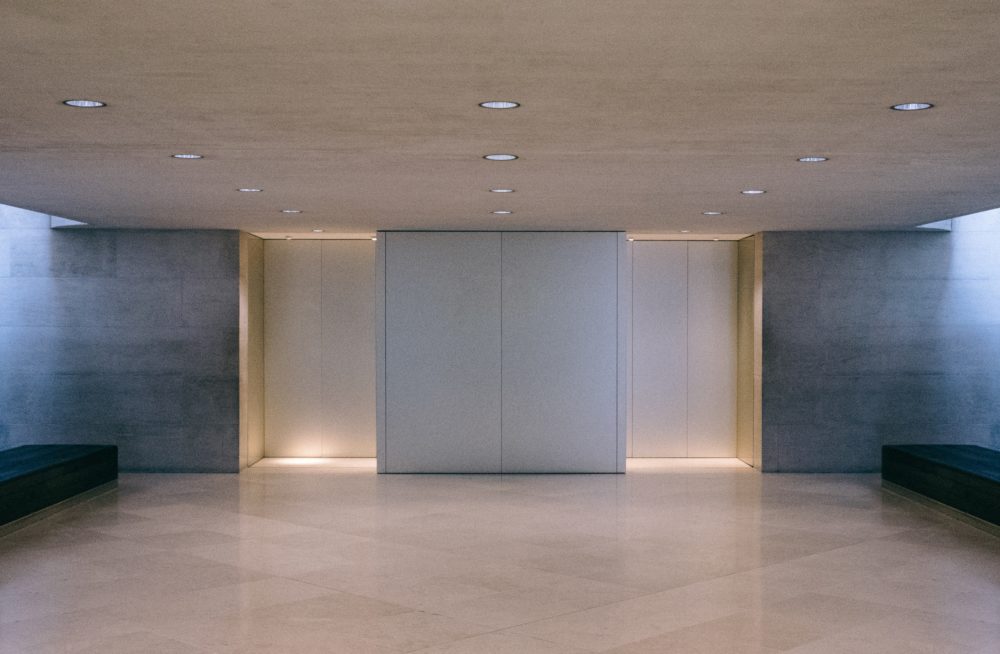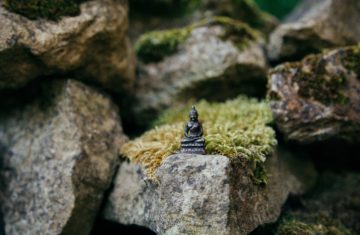The tricky part of relaxation is that we can’t really learn how to relax. We have to allow it.
When we meditate, the first step is to breathe, but the second is to relax. Ideally, these two things happen together. They belong together, naturally. When we breathe, we should feel the body begin to relax, and we can drop down into that. But for some of us, relaxing is tricky. That’s usually because we’re putting too much energy into our breathing.
It’s natural that at some point, you may find yourself treating your breathing like a JOB. You may look like a beacon of calmness on the outside, but on the inside, you are just laser-focused on breathing right. And usually, right along with that, you’re beating yourself up about not getting it right. It’s a one-two sucker punch.
Here is the beauty of meditation: whatever your mind is doing that day, however fidgety your body is that day, it’s no big deal.
No, seriously, it’s completely fine.
It could not matter any less if it tried. It is just completely and utterly beside the point.
To be honest, this is the top most annoying thing to me about meditation. I would like for there to be some hugely more important outcome on those rare days when I am in the zen zone and my mind feels clear and my body grounded. But the truth is, that time of meditation did just as much as the day before that when I was shifting all around and scratching my arm and couldn’t get one thought to leave the brain train. They are equal.
It’s completely maddening, if you’re a goals person, but it also can be the most freeing thing in the world.
When you realize it’s no big deal, you shift your energy. What I mean is that the chatter of movement going on in your body and your mind will shift when you just decide not to care that much about what’s happening.
The less you do, the more relaxation will happen to you.
Ralph De La Rosa describes this so well in his book, The Monkey is the Messenger:
Ever found yourself trying to relax? It doesn’t work. One cannot do relaxation. Relaxation is an undoing. What we can do is let go of the tension, stress, unresolved emotional material, and fatigue that is held in our body.
Relaxation is an undoing. All that energy we use trying to get ourselves to relax just winds us up even more. We become like George Castanza, yelling, “Serenity now!” If we really tune into our breath, if we really relax, we release that energy and just let it all drop away.
This *feels* really hard, which is why it’s so important to understand this next part: your natural state, your basic state of being, is a state of relaxation. All the other states of being go up from this ground floor. So relaxation is an undoing, because it’s simply the way we take the elevator back to the ground.
When we sit down for meditation, we did the work to get on the elevator. But from there, the real point is to let the elevator take us down. We don’t have to do anything; the elevator will get us to the ground floor all by itself. And our natural state, like everyone else’s, is a stress-free zone. It’s open and airy and peaceful. And it’s just waiting for us.
Meditation offers us the opportunity to relax. It’s such a rare opportunity, because the majority of the rest of our lives are filled with demands and goals and deadlines and expectations. Bless us, we have to be gentle with ourselves that it takes us more than a hot minute to disentangle from all of that stress.
So this week, may you find the freedom of relaxation’s undoing. May you do less–remarkably less, impressively less–so that relaxation can bring you back to the ground of your own quiet goodness.
This post is part of the Paramita Project, where I’m practicing one paramita, or virtue, every month for ten months. You can read all my posts on January’s paramita, meditation, here.




